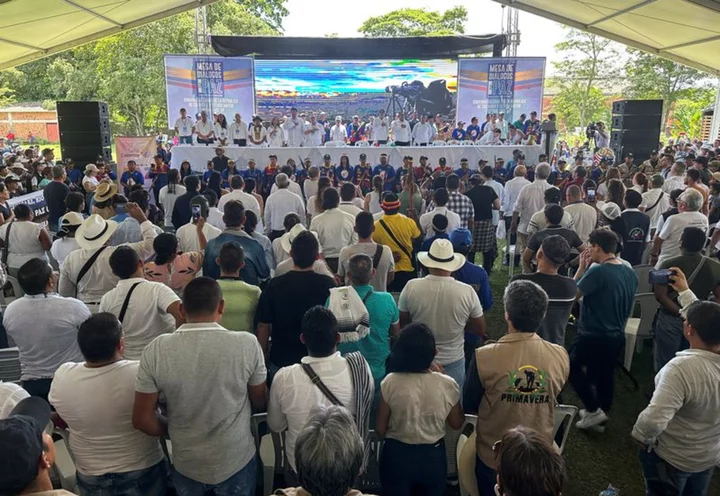Twenty five years after one of Spain's worst ecological disasters, a court case against the Swedish mining company involved opened Tuesday in the southern city of Seville.
The case, being brought by the regional government in Andalusia, holds mining company Boliden responsible for a 1998 toxic spill that contaminated a vast stretch of rivers and wetlands with heavy metals including arsenic, cadmium and mercury.
The Donana National Park wetlands, a UNESCO World Heritage Site, are home to the endangered Iberian lynx and are a vital stopover point for millions of birds migrating between Europe and Africa.
The catastrophe occurred when a wastewater reserve pool burst at Boliden's Los Frailes lead and zinc mine in the city of Aznalcollar, spewing more than five million cubic metres (17.5 million cubic feet) of highly acid sludge into the river and groundwater.
The toxic spill on April 25, 1998, killed tens of tonnes of fish and polluted nearly 5,000 hectares of fragile wetland.
The Andalusian government spent millions on the clean-up.
The case got underway on Tuesday after years of legal wrangling, which ground to a halt in 2002 when the Supreme Court ruled that Boliden was not criminally responsible.
Boliden has always denied responsibility for the disaster and blamed a subsidiary of Spanish construction company Dragados that built the wastewater pool.
"Our position is that we took a huge responsibility with regards to the clean-up of the accident and therefore the claim should be written off," a Boliden spokesman told AFP.
- Legal maze -
The ecological disaster at the mine was one of the worst Spain has ever endured.
The government in Andalusia, where Aznalcollar is located, launched a civil suit against Boliden in 2002 after the dismissal of criminal cases brought by Andalusia, the Spanish state and environmental federations including Ecologists in Action.
The procedure was bogged down for years while Boliden launched repeated appeals, but in 2012 the Supreme Court ruled that the case against the company should go ahead.
The Andalus government said it now hoped "justice would be served".
It is seeking 89 million euros ($97 million) in compensation from the Swedish multinational -- equivalent to the sums spent to try and clean up the 4,643 hectares that were contaminated.
Boliden was fined more than 45 million euros by the government in Madrid in August 2002 but it refused to pay on the grounds it had not been found guilty in court.
"A quarter of a century on, the case is still a legal maze without a decisive verdict," Ecologists in Action complained in a report in April.
"This case... is indicative of the way the mining industry operates worldwide," it said.
"This socially and environmentally irresponsible approach has turned the mining industry into one of the main threats to life on this planet."
The Aznalcollar mine, dropped by Boliden in 2001, is scheduled to reopen shortly, once new operator Mexican mining conglomerate Grupo Mexico obtains the outstanding authorisations from the regional authorities.
tpe/mg/lch/gil/rox









